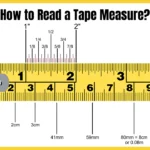When it comes to maintaining and repairing engines, an engine machine shop is an invaluable resource. These specialized shops are equipped with high-tech machinery and experienced technicians capable of handling a wide variety of engine-related issues. Whether it’s for a car, truck, motorcycle, or heavy equipment, an engine machine shop provides the expertise and tools needed to ensure engines operate efficiently and last longer.
In this article, we will explore what an engine machine shop does, why it’s essential for engine repairs, and the services they provide. We’ll also answer some frequently asked questions to help you better understand the role of an engine machine shop in the automotive world.
What Is an Engine Machine Shop?
An engine machine shop is a facility that specializes in the rebuilding, repair, and reconditioning of internal combustion engines. These shops provide services for both small and large engines, from passenger vehicle engines to commercial machinery engines. The technicians working in these shops use specialized equipment to inspect, clean, machine, and assemble engine components, ensuring that every part functions optimally.
An engine machine shop focuses on critical engine components, such as:
- Cylinder heads
- Crankshafts
- Pistons
- Blocks
- Valves
- Connecting rods
These components often need precision machining to restore their original specifications. Without these services, engines would not function efficiently, and the lifespan of the vehicle or machine would be significantly reduced.
Why Is an Engine Machine Shop Important?
-
Precision and Expertise: Engines are complex systems, and each part must work together seamlessly. An engine machine shop has the equipment and expertise to diagnose and repair these parts with precision. Professional technicians understand the specifications of various engines and ensure all parts meet manufacturer standards.
-
Cost-Effective: Engine repairs done by a machine shop can save vehicle owners a substantial amount of money compared to buying new or replacement engines. By machining and refurbishing existing engine parts, you can restore the engine to near-new condition without the need for a complete replacement.
-
Extended Engine Life: By addressing issues early on, an engine machine shop can help extend the life of an engine. Machining parts such as the cylinder head, crankshaft, and pistons can restore their functionality, preventing further wear and tear.
-
Performance Enhancement: If you’re looking to enhance your vehicle’s performance, an engine machine shop can help optimize your engine. They can modify or upgrade components to increase horsepower, fuel efficiency, and overall engine performance.
-
Customized Solutions: Engine machine shops often provide tailored services. Whether you’re working on a race car, restoring a classic car, or upgrading industrial machinery, a reputable engine machine shop will offer customized solutions based on your specific needs.
Common Services Provided by an Engine Machine Shop

Engine machine shops offer a wide range of services to help with engine repairs and maintenance. Some of the most common services include:
1. Engine Block Machining:
An engine block is one of the most vital parts of an engine. The engine block machining process involves resurfacing, honing, and boring cylinders to ensure they are within the correct specifications. This process can help restore an engine block that has been worn down over time.
2. Cylinder Head Rebuilding:
Cylinder heads are critical for engine performance. An engine machine shop can perform services like valve seat cutting, porting, and resurfacing to ensure the cylinder head performs optimally. Rebuilding a cylinder head can resolve issues like valve leakage, low compression, or poor fuel efficiency.
3. Crankshaft Grinding:
Crankshafts are responsible for converting the engine’s power into rotational motion. Over time, they can become damaged or worn out. An engine machine shop can grind the crankshaft to restore its dimensions, ensuring smooth engine performance.
4. Piston and Rod Reconditioning:
Pistons and connecting rods endure immense pressure and heat. An engine machine shop can check for damage, machine the parts, and replace worn components to keep the engine running smoothly.
5. Balancing Services:
Imbalance in the engine’s rotating parts, such as the crankshaft and flywheel, can cause vibration and premature wear. Engine machine shops offer balancing services to reduce vibrations, ensuring the engine operates smoothly.
6. Engine Assembly:
After the engine components have been machined, an engine machine shop can assist in reassembling the engine. This includes checking tolerances, installing new parts, and performing a thorough inspection before the engine is reinstalled in the vehicle.
How to Choose the Right Engine Machine Shop

Choosing the right engine machine shop is crucial for ensuring quality repairs and long-lasting performance. Here are some factors to consider when selecting a machine shop:
- Reputation: Look for a shop with a good reputation in the community. Check reviews, ask for recommendations, and inquire about their experience with your type of engine.
- Certifications: Ensure the shop is certified by relevant organizations such as the Automotive Service Excellence (ASE) or similar industry-standard certifications.
- Equipment and Technology: A modern engine machine shop should have the latest equipment for accurate diagnostics and machining. Make sure the shop is equipped to handle the work required for your engine.
- Experience: Experienced technicians will be able to handle a wider range of engine issues. Ask about their expertise with your type of engine.
- Warranty: A reputable shop will stand by their work and offer warranties for repairs and machining services.
FAQs About Engine Machine Shops
1. What types of engines do engine machine shops work on?
Engine machine shops work on a wide range of engines, including those for cars, trucks, motorcycles, boats, and heavy equipment. Some shops also specialize in certain types of engines, such as diesel engines or high-performance race engines.
2. How long does it take to rebuild an engine in an engine machine shop?
The time it takes to rebuild an engine depends on the complexity of the work and the availability of parts. Generally, it can take anywhere from a few days to several weeks.
3. Can an engine machine shop restore a damaged engine?
Yes, an engine machine shop can restore a damaged engine by machining parts, replacing worn components, and rebuilding the engine to factory specifications. However, the extent of the damage may determine if a complete engine replacement is necessary.
4. How much does it cost to have work done at an engine machine shop?
Costs vary depending on the type of work, the complexity of the engine, and the parts that need to be replaced or machined. It’s best to get a detailed estimate from the shop before committing to any services.
5. How do I know if my engine needs to go to a machine shop?
If you’re experiencing issues like poor performance, strange noises, overheating, or low compression, it’s a good idea to take your engine to an engine machine shop for inspection and possible repairs.
Conclusion
An engine machine shop is a vital resource for anyone needing engine repairs or performance enhancements. These specialized shops offer the tools, expertise, and precision required to keep engines running smoothly and efficiently. Whether you’re restoring a classic car, repairing a commercial engine, or upgrading your vehicle’s performance, an engine machine shop plays a key role in ensuring your engine operates at its best.
By choosing the right engine machine shop, you can save money, extend the life of your engine, and improve your vehicle’s performance. Make sure to do your research and find a shop that offers the services and expertise needed to get the job done correctly
Meta Description:
An engine machine shop plays a crucial role in engine repair and maintenance. Learn how these specialized facilities provide high-quality






